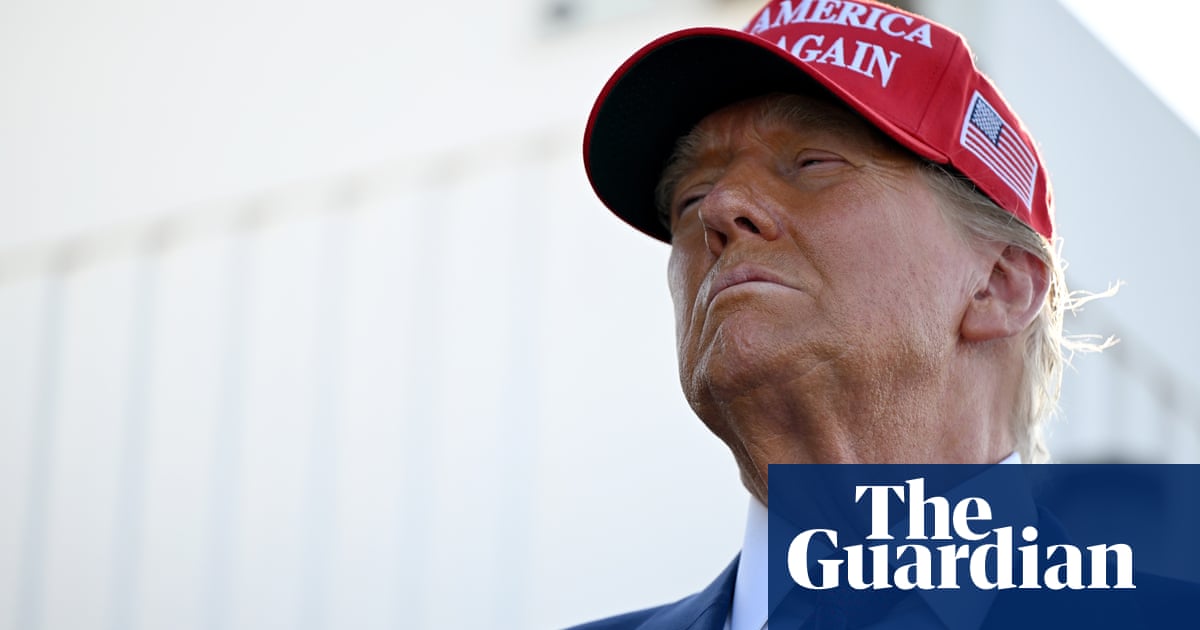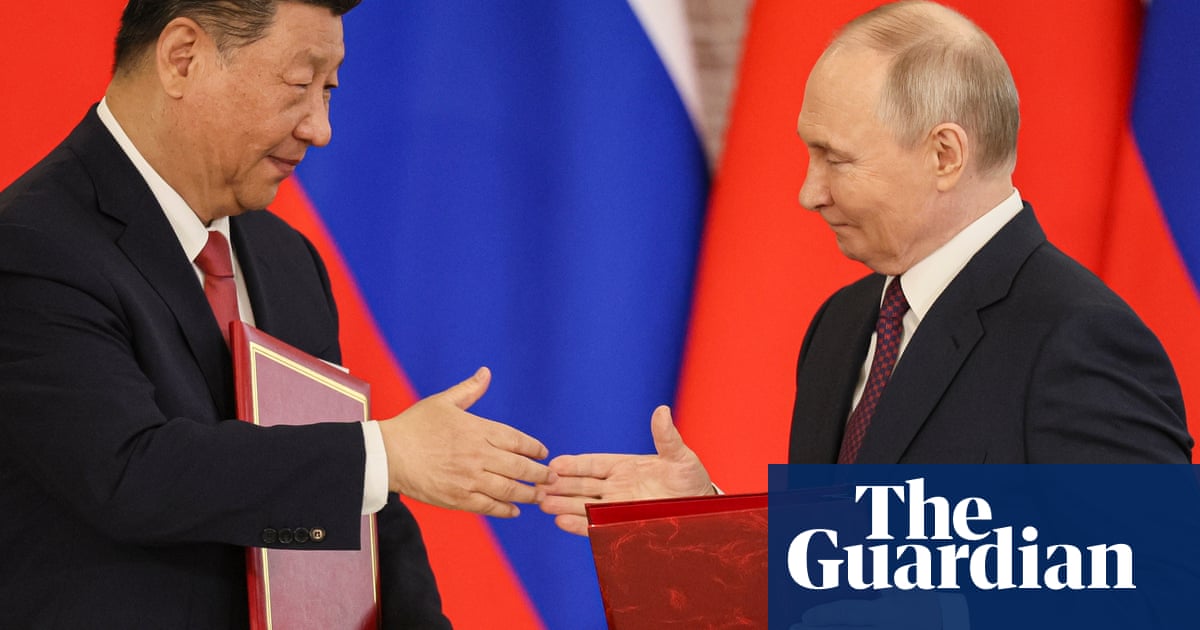Donald Trump has quickly tapped big donors and political allies for top posts to roll back environmental and health regulations, cut taxes and government spending in ways that will benefit key backers, say government watchdogs.
Armed with blueprints to expand presidential power in aggressive ways and backed by a bevy of billionaire donors and ultra loyalists who helped him win, the president-elect’s transactional style of awarding powerful posts to backers such as X owner Elon Musk, or allies of others such as fracking mogul Harold Hamm, is seen as “unprecedented”, and will likely boost their bottom lines, say critics.
“Trump has taken the cliche that ‘all politics is local’ and turned it into ‘all politics is about personal payback’,” said former Federal Election Commission general counsel Larry Noble.
“The naked transactional nature and potentially dangerous conflicts of interests reflected in Trump’s ongoing paybacks are unprecedented in modern times.”
Among the super-rich donors helping shape the president-elect’s administration, no one seems to loom larger than Musk, who gave some $200m to a pro-Trump Super Pac. Musk has become a ubiquitous adviser to Trump who tapped him to co-chair an outside federal advisory panel on “government efficiency”, an effort fraught with conflicts given the billions of dollars in government contracts that Musk’s companies now boast.
Dubbed the Department of Government Efficiency (Doge), Musk has suggested his goal is finding $2tn in spending and regulatory cuts which critics say could benefit his company SpaceX, Tesla and other Musk companies.
The panel’s provenance stems from Musk, the world’s richest man with a fortune of about $260bn, who touted the idea to Trump in August during a two-hour chat they had on Musk’s X, which served as a major Trump booster while pushing misinformation.
Similarly, fossil-fuel tycoons such as Hamm, a multi-billionaire who leads the fracking giant Continental Resources and donated some $4m to help Trump win while raising millions more from industry friends, are sitting pretty as Trump eyes rollbacks in climate change measures and protecting the environment.
To boost oil and gas interests, Trump has named North Dakota governor Doug Burgum, an industry ally and Hamm friend, to lead the interior department and a new national energy council, positions widely expected to spur more drilling, even though oil and gas output has reached record levels during Joe Biden’s presidency.
Overall, oil and gas interests coughed up more than $75m to help Trump win after he repeatedly said he was all for “drill, baby, drill” policies; and at a Mar-a-Lago dinner last spring Trump exhorted some 20 industry leaders including Hamm to raise $1bn for his campaign.
Further, the burgeoning crypto industry that Trump aggressively courted and whose leaders helped underwrite his campaign with millions of dollars, is poised to reap major regulatory and financial benefits.
Trump pledged at a bitcoin conference in July to make America the “crypto capital of the planet and bitcoin superpower of the world”, and told industry moguls they were “geniuses”, despite proclaiming in 2021 that bitcoin was a “scam”.
To butter up the bitcoin leaders, Trump promised to oust Securities and Exchange Commission (SEC) chair Gary Gensler, who the industry has viewed as an overly tough regulator for cracking down on some cryptocurrency frauds, and “appoint an SEC chair who will build the future, not block the future”.
Lighter SEC regulation could personally benefit a new venture of Trump and his sons Don Jr and Eric. Trump announced on X in mid-September that they were launching a cryptocurrency firm, World Liberty Financial, with help from an old Trump friend Steve Witkoff. The New York Times reported further that “two little-known crypto entrepreneurs with no experience in running a high-profile business” were also involved.
While Trump and his sons reportedly will not own or manage World Liberty, they could receive some compensation, and a white paper for the new firm during his campaign called Trump its “chief crypto advocate”. Trump said on X: “Crypto is one of those things we have to do.”
Richard Painter, a law professor at the University of Minnesota who served as the chief White House ethics lawyer for George W Bush, told the Guardian when the venture was revealed: “The last thing we need is a candidate for president of the United States or his family going into the crypto business.”
Another key figure in Trump’s emerging influence network is transition co-chair and billionaire Howard Lutnick, who heads Wall Street powerhouse Cantor Fitzgerald, which boasts sizable business ties to the crypto firm Tether and who Trump chose on Tuesday to lead the commerce department.
Likewise, billionaire Linda McMahon, who now co-chairs the transition, was picked by Trump on Tuesday to head the Department of Education, an agency that he has suggested dismantling.
To help Trump win, McMahon, a former wrestling company executive who ran the Small Business Administration in Trump’s first term, ponied up about $21m to his campaign and a pro-Trump Super Pac; Lutnick donated about $6m to boost Trump’s win and an allied Super Pac.
In making his rapid-fire appointments, Trump has lavished praise on his nominees’ qualifications, while singling out Musk in his Mar-a-Lago victory speech by declaring that a “star is born”.
But government watchdogs say Trump has taken rewarding of major donors and top loyalists to new levels, posing risks of “corruption”.
“Major donors have had a hand in shaping policy in every recent administration, but the unprecedented role that Musk and certain other donors, especially from the tech and finance industries, played in the campaign and are now playing in the transition means that their influence over the incoming administration’s agenda is likely to be unprecedented,” said Dan Weiner, the director of the elections and government program at the Brennan Center for Justice at NYU Law.
Other campaign finance watchdogs voice similar fears.
“While campaigning for the presidency, Trump routinely courted big-money donors with offers of access, influence, and even appointments in his administration,” said Saurav Ghosh, the director of federal campaign finance reform at the nonpartisan Campaign Legal Center.
“He now appears to be wasting no time making good on those promises: Elon Musk, who ‘invested’ $200m in electing Trump through a Super Pac, has seen an immediate return, both in terms of influence with Trump and by being asked to join Trump’s new administration – a proposal that Trump explicitly offered Musk during the campaign.”
Ghosh stressed: “Trump’s transactional approach to governing epitomizes corruption and will sadly ensure that in his second term, big donors’ interests will continue to come before the needs of millions of Americans.”
That transactional approach has been broadened by Trump to benefit political allies who stood with him during his two impeachments in his first term and in this year’s campaign, but whose appointments have sparked criticism from watchdogs and some Republicans due to their thin resumes for their positions.
Among other new and older allies with weak credentials for their appointed cabinet posts, Trump picked vaccine skeptic and former Democrat Robert F Kennedy Jr to lead the health and human services department (HHS) after he dropped his own long-shot campaign for president and became a vocal Trump backer. Kennedy has sparked hefty criticism for his conspiratorial health views and lack of medical training, which could lead to a tough battle to win confirmation.
Besides RFK Jr, Trump’s early picks for his cabinet reveal he is putting a premium on placing strong loyalists above expertise to fill key posts to reduce the risks of policy rifts that he had with several of his top cabinet secretaries during his first term, say watchdogs.
Trump, for instance, tapped Fox News host Pete Hegseth to lead the Department of Defense, and the firebrand ex-congressman Matt Gaetz as his attorney general at the justice department, despite his track record of ethical and legal problems.
After facing mounting political fire over allegations of paying underage women for sex, which Gaetz denies, Gaetz announced on Thursday he was bowing out to avoid being a distraction to Trump’s agenda.
Within hours, Trump tapped ex-Florida attorney general Pam Bondi, who helped defend him during his first impeachment and worked to contest Trump’s loss in 2020, to be his nominee to head the justice department.
Hegseth, too, is facing ethical questions after a police report detailed sexual assault allegations against him in 2017, which he denies. Hegseth may have problems winning Senate confirmation.
In Noble’s view, the multiple avenues that Trump is exploiting to reward his big donors and political friends carry huge risks for the future safety of most Americans.
Noble said Trump moved fast to nominate “clearly unqualified loyalists” in Gaetz to be attorney general, ex-Democrat turned campaign ally Tulsi Gabbard to be director of national intelligence, and RFK Jr to lead HHS.
“He has also made it clear he wants to appoint people to agencies who will give his billionaire donors what they have long wanted – government policies and deregulation which will allow them to increase their wealth, even if at the expense of the safety and financial wellbeing of the majority of Americans and the country’s national security,” Noble added.


